Abstract
The lack of genetic uniformity of the Malayan Langat virus, TP-21 strain isolated from Ixodes granulatus ticks in Malaya, was demonstrated.
Increased pathogenicity of the virus for white mice and rhesus monkeys after passage through chick-embryo fibroblast cultures at temperatures of 36°C and 40°C is due to the selection of the pathogenic virus particles which are always present in the initial brain-tissue suspension of the TP-21 Langat strain.
The frequency of the occurrence of pathogenic clones and their selection rate was studied in relation to the conditions of cultivation. A study was also made of the genetic stability and basic biological properties of pathogenic and non-pathogenic clones of the Langat virus.
Full text
PDF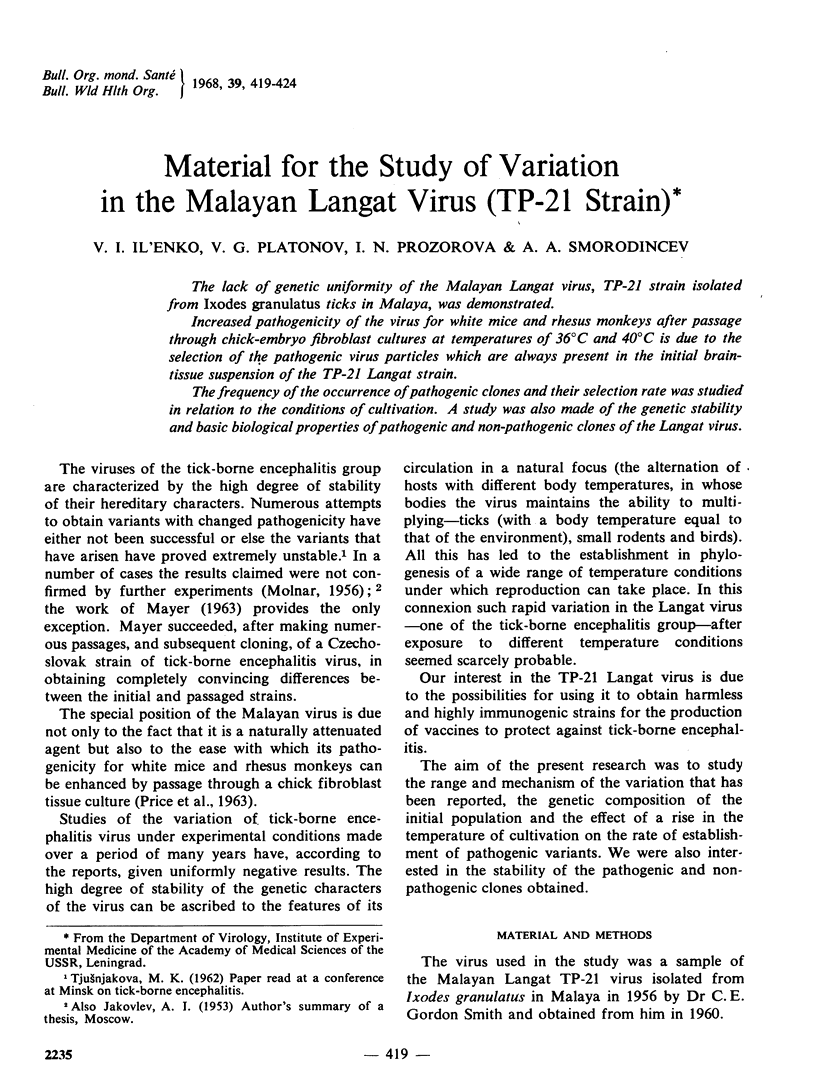
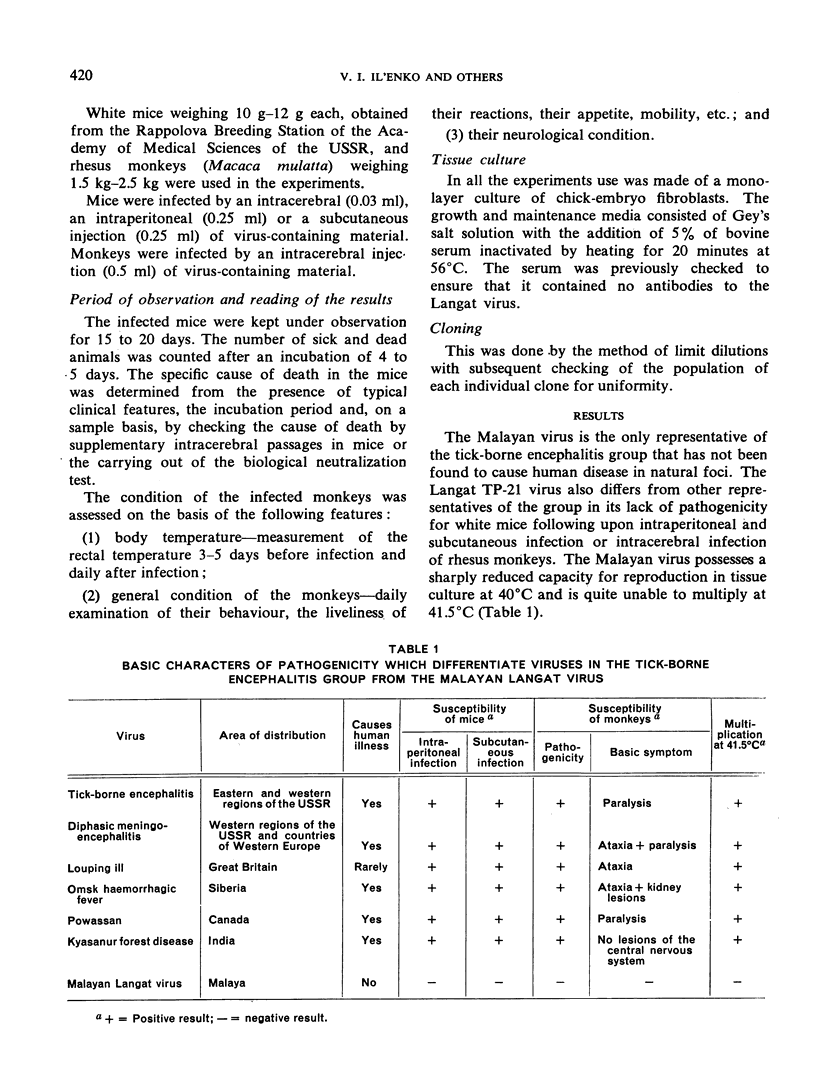
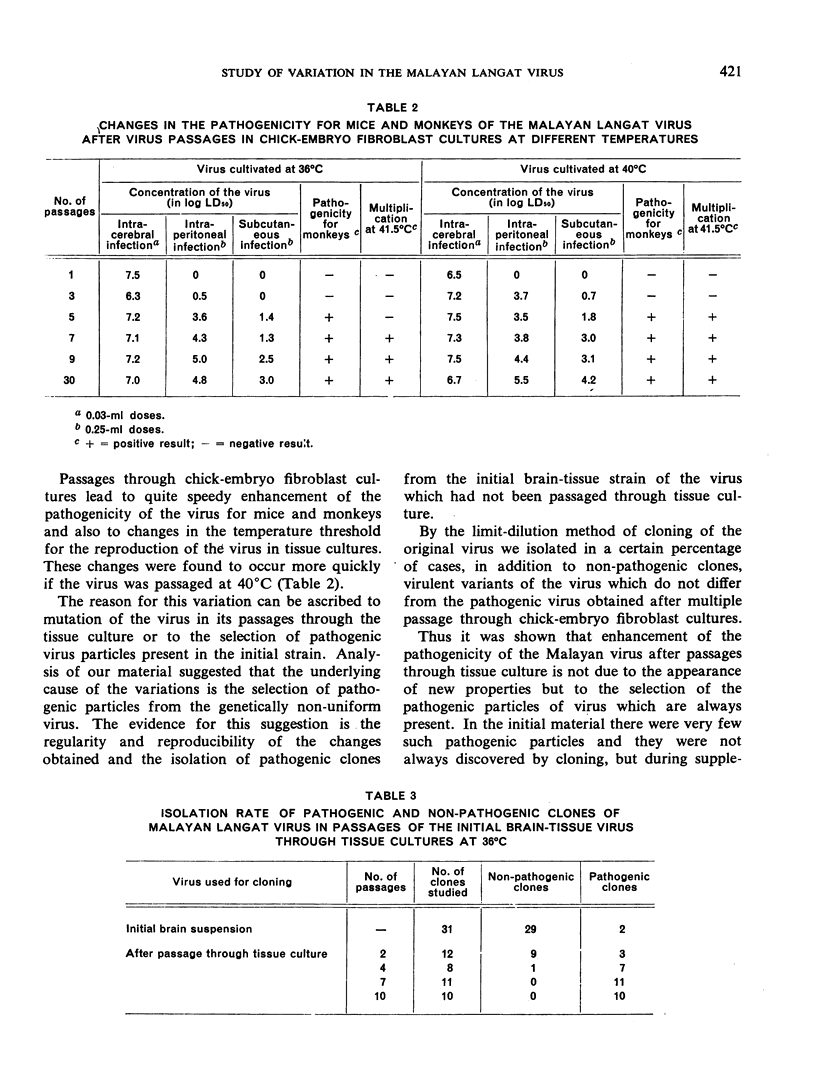
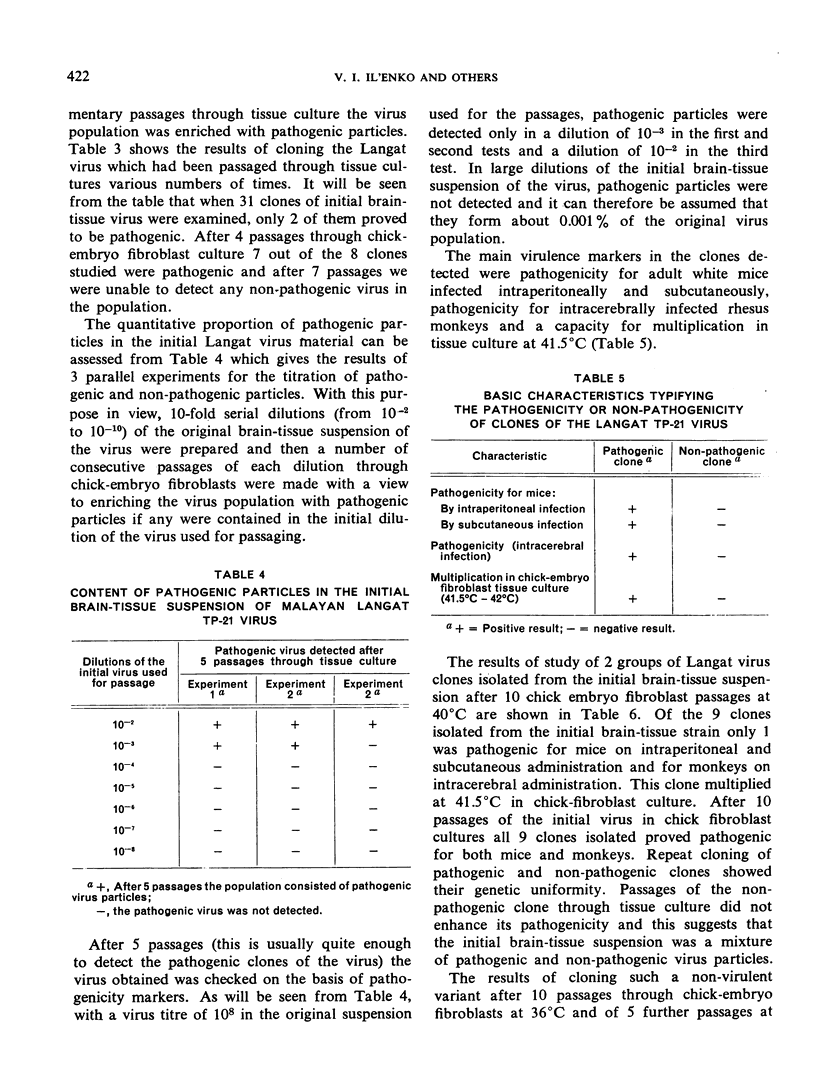
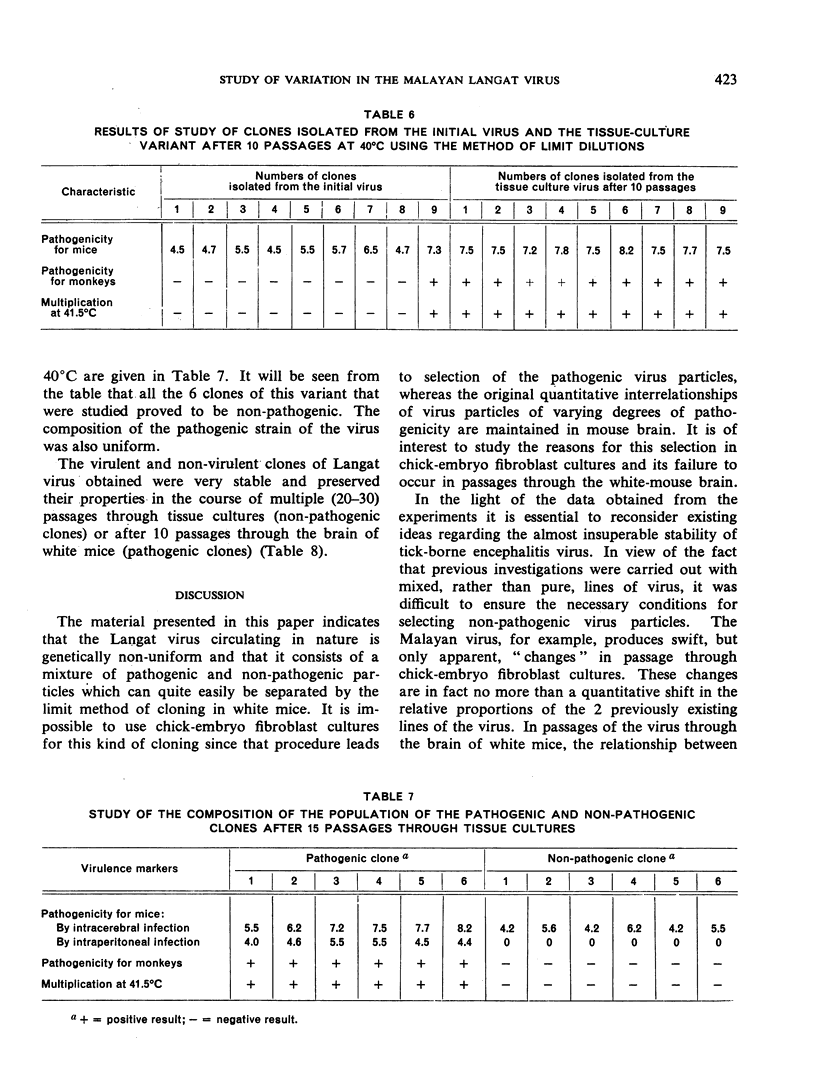
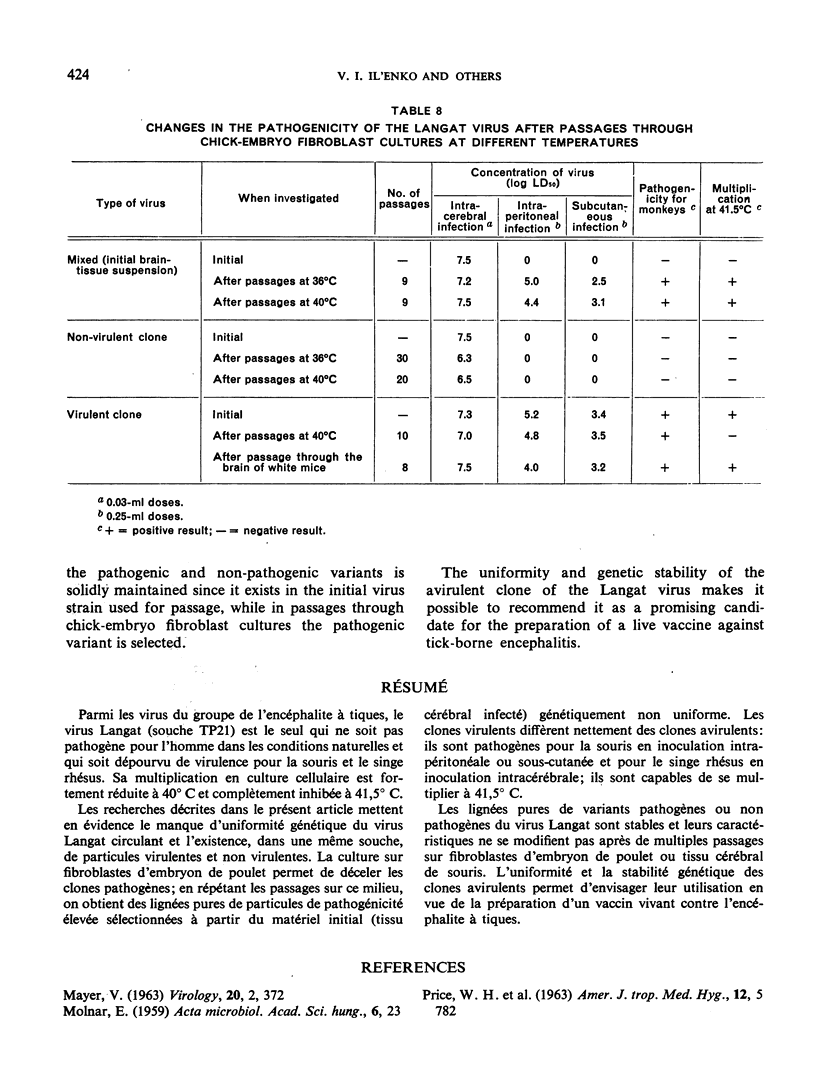
Selected References
These references are in PubMed. This may not be the complete list of references from this article.
- MOLNAR E. Some biological properties of a Hungarian strain of the tickborne encephalitis virus; adaptation of virus to the embryonated egg and chick embryonic tissue cultures. Acta Microbiol Acad Sci Hung. 1959;6:23–33. [PubMed] [Google Scholar]


